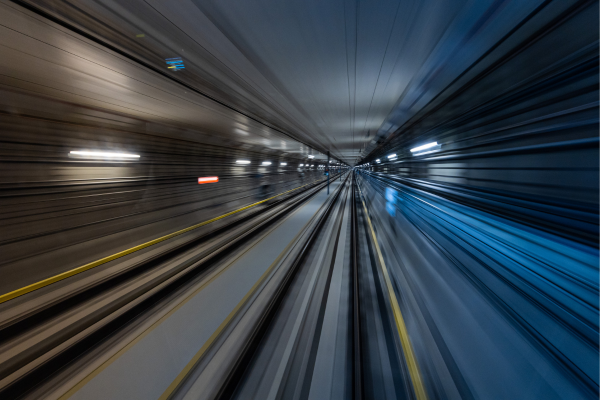
Major infrastructure projects are a risky business
In 2018, 1.7 billion people (23% of the world’s population) lived in a city with at least 1 million inhabitants. This is projected to increase to 28% by 2030.
Cities with more than 10 million inhabitants, often termed ‘megacities’, will rise from 33 in 2018 to 43 in 2030. And, by 2050, it's projected that more than two-thirds of the world's population will live in urban areas; that’s close to 7 billion people!
This will create huge demand for public sector infrastructure development such as power stations, electricity grids, water supply and treatment, roads, railways and airports. All of which is vital to the movement of people and goods, and the growth of the overall economy.
Metro and Infrastructure Construction projects are all unique in character and in general terms do not lend themselves to standardization, although modern methods of construction can be applied to some. There are also multiple and complex stakeholders and, with them being publicly funded, increased scrutiny, governance and press coverage (both good and bad…).
As such each project requires a bespoke approach, including risk identification and subsequent management.
Our assessment of the top ten risks on a new build Metro are:
Financial: The construction of a new metro is an extremely costly endeavour, and the funding may be at risk due to delays, cost overruns, or unexpected events.
Regulatory: Regulatory approvals are essential for any large infrastructure project, and delays or denials can cause significant delays and cost overrun. Early engagement with regulatory authorities is essential, as is the maintenance of a close working relationship with them throughout the project.
Stakeholder: Stakeholder support is critical to the success of any large infrastructure project, and opposition can contribute to delays or, in the worst-case scenario, cancellation. A transparent and effective communication plan is essential.
Technical: Modern construction involves the use of complex technology, and technical failures can cause significant project delays and cost overruns.
Environmental: Failure to address these impacts can lead to project delays and cancellations.
Geotechnical: Constructing tunnels and excavating large areas of land can cause subsidence or even landslides or complete ground failure.
Construction safety: Accidents and safety violations can cause significant project delays and cost overruns.
Political: Large infrastructure projects are ALWAYS subject to political pressure and interference. This leads to delays and cost overruns. Did someone mention Hs2….?
Supply chain risks: Large infrastructure projects involve the procurement of materials and equipment from multiple suppliers, and supply chain disruptions can cause significant project delays and cost overruns.
Operational: Once the metro line is operational, risks could include technical failures, accidents, and security breaches that can cause disruptions and financial losses.’
In the UK, we have recently seen the disruption that a political decision can make to a major infrastructure project. Overall, this is a depressing account of what is wrong with decision-making on large-scale projects in the UK, with this latest one certainly increasing costs in the long term.
However, if you are prepared to relocate and/or work internationally then there are ample opportunities for experienced professionals.
If you're interested in exploring an international move, then please get in touch ‘here’


